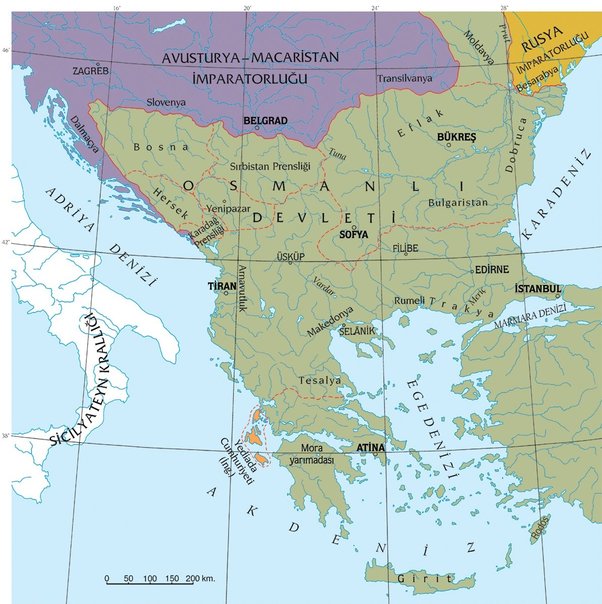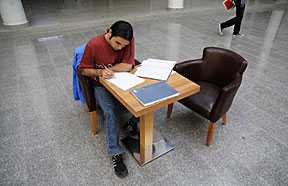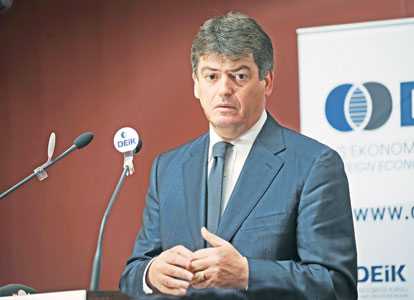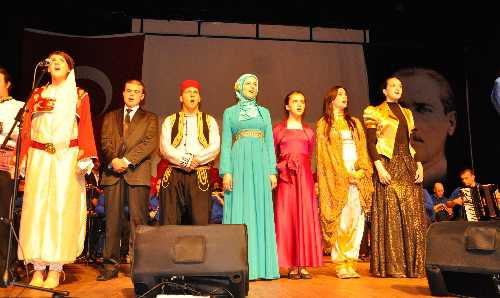From economics to culture, many see the country taking on the role of a new regional power
By Misko Taleski for Southeast European Times in Skopje — 11/07/11
|
Turkey has played a moderator role between Serbia and the tripartite BiH presidency. [Reuters]
|
Over the past decade, Turkey has carried out a multi-dimensional and multi-regional foreign policy. With its EU membership prospects in limbo, the country has not only looked to the east, but also towards its “near abroad” in the Balkans.
EU regional player Greece’s increasing social-financial problems provide ample room for Turkey — whose economy now ranks twelfth in the world, with a GNP of $10,000 per person — to take control of the regional rudder.
“After Yugoslavia’s disintegration, Turkey’s strategic interest returned to the Balkans, also a former Ottoman territory. This time around, the influence is economic and cultural but it soon will become geopolitical,” military-political analyst Petar Shkrbina told SETimes. “Erdogan knows that Europe needs Turkey and not the other way around. The main networks of gas and oil pipelines will go through Turkey.”
The Balkan countries, primarily Macedonia and Bosnia and Herzegovina (BiH), but increasingly Serbia as well, have achieved significant political co-operation with Ankara. In the past several years, the economic ties have strengthened as Turkish investors eye the opportunity to secure a foothold in the Balkans marketplace.
Analysts are unanimous that the pan-European corridor No. 10, which will connect the Balkan countries with the rest of Europe, will command the economic attention of Turkey. The corridor’s left wing will secure a transportation connection between Turkey and the Balkans, and Turkey and the EU.
Though Turkey is keen to develop bonds with Muslim communities in the Balkans, it says it aims to engage all ethnicities and religions in an effort to increase stability in its neighbourhood.
“Turkey has no imperialist ambitions but is trying to help the neighbouring countries as it can,” Turkish Ambassador to Serbia Ali Riza Colak said, answering charges that Ankara is interfering in Serbia’s internal affairs after a senior military delegation visited Novi Pazar, in Serbia’s Muslim-dominated Rashka (or Sandzak) region.
Rashka remains a source of tension in Ankara-Belgrade relations because the Serbs widely believe local Muslim leaders try to obtain autonomy with the help of Turkey, and many Muslims there identify with BiH.
 Ataturk museum in Bitola, Macedonia. [Mishko Taleski/SETimes] Ataturk museum in Bitola, Macedonia. [Mishko Taleski/SETimes]
|
In response, Ambassador Riza Colak says “Sandzak is the bridge for co-operation between the two countries, and Belgrade must understand the sensitivity of the people in this region.”
Turkey-BiH relations are particularly important for the region. Erdogan’s election victory statement last month, in which he said his AKP’s victory would benefit Sarajevo as much as it would Istanbul, triggered harsh reactions in Republika Srpska.
The Serb member of BiH’s tri-member presidency, Nebojsha Radmanovic, said that such statements would cause political problems between BiH’s two entities and could lead to new divisions among the three constituent peoples.
“While Bosniak authorities in Sarajevo see a positive effect from Turkey’s role in BiH, Serbian politicians there are reserved and do not accept any political role by Ankara in the Balkans,” Shkrbina tells SETimes.
“Erdogan’s open ambitions to spread the ‘Green Diagonal’ [spread of Islamic influence through a set of connected countries with Muslim populations] in this space have their own limits. Neither the illegal government of the Muslim-Croat federation will help him to do that nor the political pressures on Croats in central Bosnia,” RS Vice President Emil Vlajki said.
Despite any lingering Serbian nationalist suspicion, Turkey has been playing a constructive moderator role by bringing together the presidents of BiH and Serbia to encourage a policy of dialogue and regional security.
The most recent example is the July 6th visit of Serbian President Tadic to Sarajevo, which was secured at a summit among all parties in Istanbul last April. Serbia now pledges to guarantee BiH’s integrity and wants to close all open questions.
Turkey has also expressed its desire for BiH and Serbia to enter the Euro-Atlantic community through membership in the EU and NATO.
Although several political issues remain an obstacle to better relations, both Ankara and Belgrade aim to smooth over political differences through greater economic co-operation and interdependence.
For example, Belgrade offered Turkish Airlines a meeting in July to chart a strategic co-operation plan to address long-standing problems facing JAT Airways. Analysts expect the final, positive outcome to be the forming of a joint national airline.
|
In December 2010, Turkish Defence Minister Vecdi Gonul and Bosnian counterpart Selmo Cikotic met in Sarajevo to discuss business co-operation in the military industries. [Reuters]
|
Turkish economic activity extends throughout the region. The Turkish company TAV has already invested 200m euro in rebuilding Macedonia’s airports. Since March 1st, the Skopje and Ohrid airports are under TAV control for the next 20 years. TAV’s executives view Macedonia as a Southeast European hub and have announced they will build a new airport in eastern Macedonia.
In addition, Turkey’s Shishe Dzam company has announced its interest in a strategic investment of 150m euro in two factories in Macedonia to produce glass.
Politically, Turkey will continue to be Macedonia’s steadfast supporter in Euro-Atlantic integration, advocating membership under Macedonia’s name despite the longstanding dispute with Greece.
But the relations have a deeper cultural and historical context in Mustafa Kemal Ataturk, the founder of modern Turkey, who spent his youth in Macedonia and was educated at an Ottoman military school in Bitola, adding an emotional dimension to how Ankara — and the Turkish people — view Macedonia.
A joint celebration of Ataturk’s life and achievement is now held annually in Bitola. Such events contribute to increased tourism in both directions. Turkey’s summer destinations and Macedonia’s mountain and nature potential are attractive to both peoples, and there has been a large increase in tourist agency activity in the past decade.
An important element of Turkey’s “soft power” is the increasing number of soap operas and other TV shows that have conquered audiences throughout the Balkans. In virtually every Balkan state, Turkish shows are breaking records, as well as the long-held prejudice against Islam.
“They are very professionally produced, and they promote not luxury and glamour, but also traditional Islamic customs during marriage and funerals. The series are the cheapest but most effective approach to spread Turkish influence in the region,” Shkrbina said.





